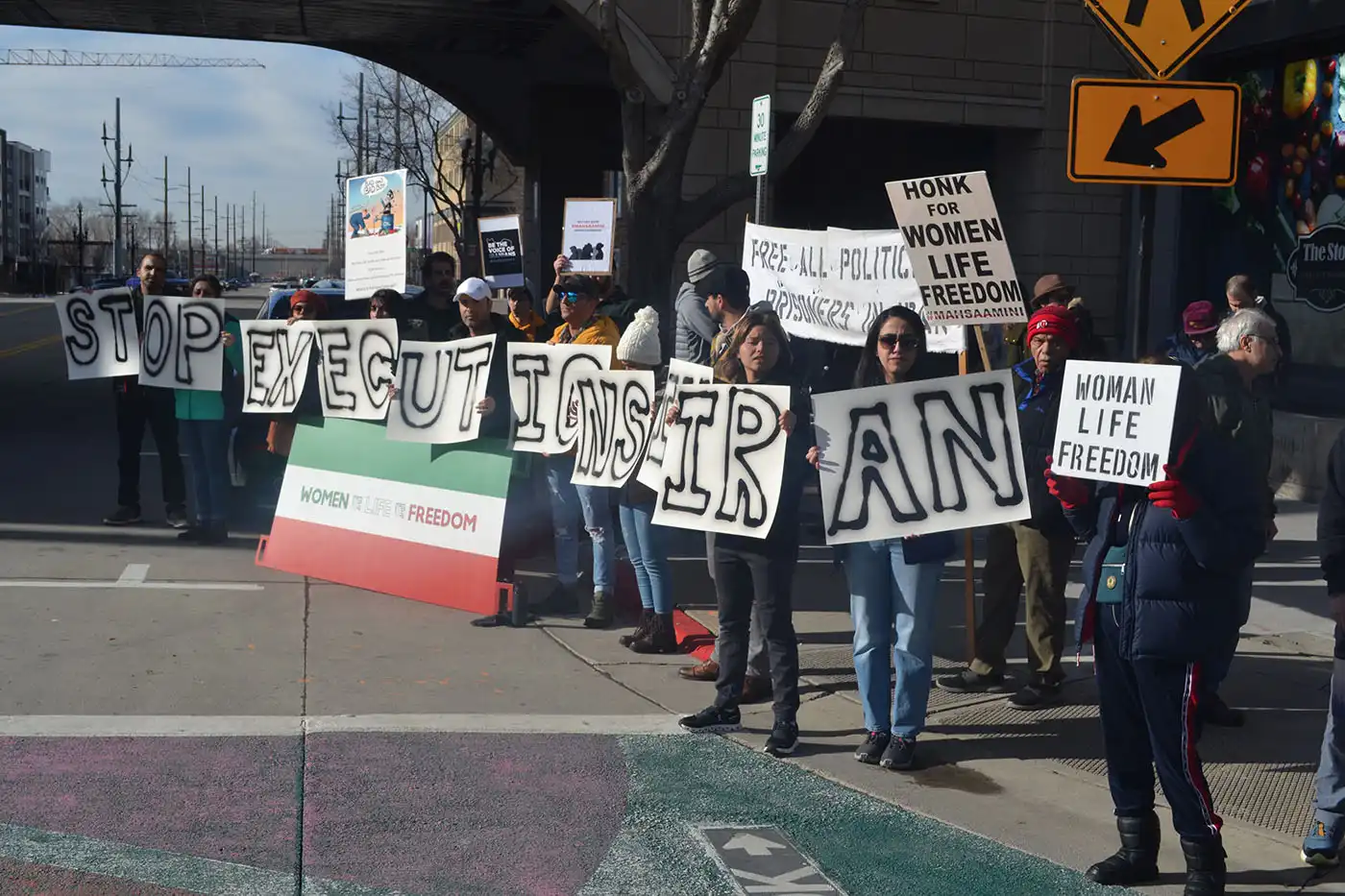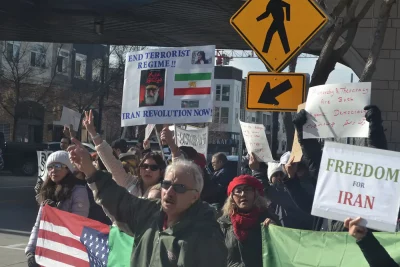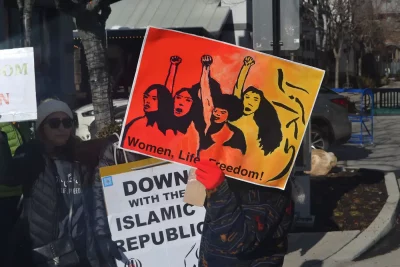
Women, Life, Freedom: A Conversation with Free Iran SLC
Activism, Outreach and Education

Free Iran SLC comprises an assortment of parents, scientists, students, professionals and educators that share an unbreakable commonality: a lifelong goal for a democratic and liberated Iran. Syd collects and organizes academic data on Iranian citizens’ desire for autonomy; Medhi tore down photos of Ruhollah Khomeini in classrooms as a child; Shanti and Shaveez were in the streets of Tehran during the Green Movement of 2009; H.H. refused to follow the barbaric orders of the Basij militia. Propelled by a devotion to humanity, these five share their stories and skills in order to build a better future.
The dream for a Free Iran has always existed among its people. The country was once a vibrant epicenter of cultural cross-pollination, education and the arts in the Middle East before the Islamic Republic (IR) Revolution in 1979. “The Iran I grew up in was a lovely country—the Iranian people gave me a lot of love,” says Shaveez. “I felt a lot of brotherhood, [and] everybody was connected. I see Iran through a very complex lens, as a place that has always had democratic aspirations.”
“The notion that ‘This is just how their culture is’ needs to be erased.”
Any remnants of a free society crumbled under the IR. The regime mandates complete compliance of the regime’s law, forcing the Iranian people to exist under a strict theocracy. Noncompliance results in extreme and often life-threatening consequences. “In Iran, you have to live a double life,” says Syd. Shanti agrees, “I was never religious since I was a 6th grader, but you had to lie to be safe.”
Last September, IR’s morality police arrested and murdered 22-year-old Masha Jina Amini. Her crime was immodesty. Amini is revered as a martyr for the Iranian liberation, as Iranian women, religious minorities and LGBTQ+ individuals are bound with tighter shackles of oppression. Many activities Americans take for granted—going to a bar, smoking a cigarette, wearing nail polish—are prohibited for women in Iran. Shanti recalls being apprehended for walking in public with a man to whom she was not married. “I remember thinking, ‘I’ve done nothing, I was just walking with a classmate, and I’ve been put in jail,’” she says.
“There is a lot of misinformation [that] belittles this movement to economic hardship or hijab.”

The tyrannical justice system of the IR is supported by a network of censorship and isolation tactics. For 44 years, Iranians have not been able to express political dissent against the IR without fear of imprisonment. Further, media outlets internally and internationally aligned with the IR perpetuate propaganda in order to create widespread misrepresentation of the humanitarian crisis in Iran. “We need all of these independent sources to get this information out of Iran,” Medhi says.
While the members of Free Iran SLC are protected and established in Utah, they are inspired by the young people in Iran who are risking it all to practice their beliefs. “After what happened to Masha Amini, some of us wanted to express concerns and thought that we could have a better outcome if we organized,” says H.H. “We were in a coffee shop thinking, ‘What can we do to help the people in Iran?’’’ They worked together in different ways, creating a platform, flyers and a podcast, writing proposals and petitions and tying their hands to trees at President’s Circle while singing Kurdish songs in an act of solidarity.
“We need all of these independent sources to get this information out of Iran.”
The group emphasizes that raising awareness of what Iranians are fighting for is necessary to incite change at a global level. “There is a lot of misinformation [that] belittles this movement to economic hardship or hijab,” H.H. says. Medhi adds, “The notion that ‘This is just how their culture is’ needs to be erased.” The goal is to not reform the system, but to create something entirely new. Shanti says, “We need to stop recognizing this system, and then we can make a difference that is good for the people of Iran and the world. If it is good for women, it is good for everyone.”
Read more about local leadership for underrepresented communities in Salt Lake and Utah:
Leadership, Education, And Equality: A Conversation With Community Leader Shawn Newell
Unidxs: Existing and Celebrating Without Resistance
